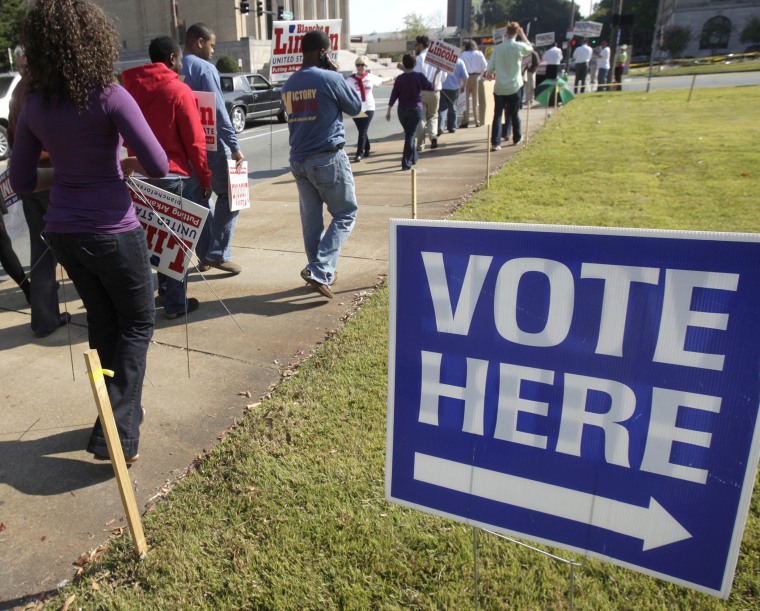Early last year, with Republicans taking control of the Arkansas' General Assembly for the first time since the 1870s, the new GOP majority got right to work -- quickly tackling new voting restrictions. Gov. Mike Beebe (D) vetoed a needlessly harsh voter-ID bill, but Republicans overrode the veto and imposed the voter-suppression policy on the state.
Conservative lawmakers cannot, however, easily circumvent a ruling from the state Supreme Court. Zach Roth and David Taintor reported last night:
The Arkansas Supreme Court struck down the state's voter ID law Wednesday evening, meaning it won't be in effect for the impending midterm elections. The court's majority upheld an appeals court ruling that found that by requiring ID, the law added an additional voter "qualification," which violates the state's constitution.
Initial analyses suggest the ruling blocks enforcement of the voter-ID law in this year's elections, which may have an important effect -- Arkansas is home to several competitive statewide elections this year, including U.S. Senate and gubernatorial races.
The entirety of the 20-page ruling is available online here (pdf). There theoretically could be an appeal to the federal courts, but given that the case deals with the state Constitution, it seems unlikely.
It's worth re-emphasizing that the Arkansas Constitution, unlike the U.S. Constitution, guarantees voting rights in a rather explicit way, and by adding new restrictions on citizens' access to participate in elections, legislators made it easy for the courts to reject the new law.
In fact, Republicans in the state were rather brazen about it, imposing restrictions that were even more outlandish than voter-suppression efforts elsewhere.
In the hopes of combating a voter-fraud problem that doesn't actually exist, the state's voter-ID law presented "a limited range of government-approved forms of identification. Out-of-state college IDs, for instance, are not allowed. Voters without ID must cast provisional ballots, then go to the county clerk to affirm that they're too 'indigent' to afford [one of the approved forms of identification]. And unlike some other states' ID laws, this one does nothing to help voters obtain identification, such as providing transportation to government offices."
In an amusing twist, former Rep. Asa Hutchinson (R), the frontrunner in this year's gubernatorial race in Arkansas, was initially denied a ballot in May when he tried to vote for himself in a primary.
In the larger context, court rulings have been a mixed bag lately. Voting-rights advocates have successfully defeated Wisconsin's voter-ID law, but opponents of voting rights had better luck protecting restrictions in Texas.
